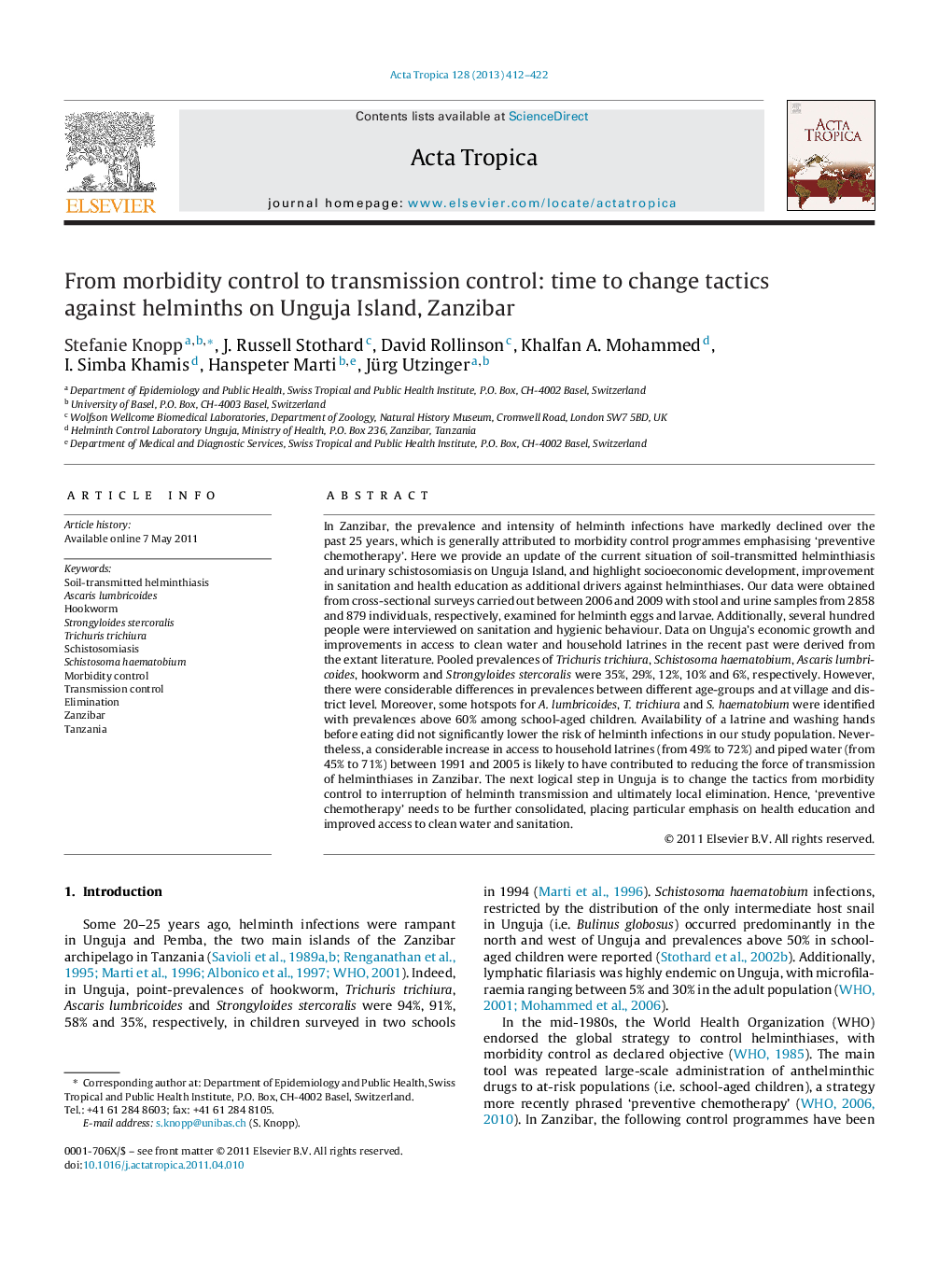| کد مقاله | کد نشریه | سال انتشار | مقاله انگلیسی | نسخه تمام متن |
|---|---|---|---|---|
| 3393887 | 1221409 | 2013 | 11 صفحه PDF | دانلود رایگان |

In Zanzibar, the prevalence and intensity of helminth infections have markedly declined over the past 25 years, which is generally attributed to morbidity control programmes emphasising ‘preventive chemotherapy’. Here we provide an update of the current situation of soil-transmitted helminthiasis and urinary schistosomiasis on Unguja Island, and highlight socioeconomic development, improvement in sanitation and health education as additional drivers against helminthiases. Our data were obtained from cross-sectional surveys carried out between 2006 and 2009 with stool and urine samples from 2858 and 879 individuals, respectively, examined for helminth eggs and larvae. Additionally, several hundred people were interviewed on sanitation and hygienic behaviour. Data on Unguja's economic growth and improvements in access to clean water and household latrines in the recent past were derived from the extant literature. Pooled prevalences of Trichuris trichiura, Schistosoma haematobium, Ascaris lumbricoides, hookworm and Strongyloides stercoralis were 35%, 29%, 12%, 10% and 6%, respectively. However, there were considerable differences in prevalences between different age-groups and at village and district level. Moreover, some hotspots for A. lumbricoides, T. trichiura and S. haematobium were identified with prevalences above 60% among school-aged children. Availability of a latrine and washing hands before eating did not significantly lower the risk of helminth infections in our study population. Nevertheless, a considerable increase in access to household latrines (from 49% to 72%) and piped water (from 45% to 71%) between 1991 and 2005 is likely to have contributed to reducing the force of transmission of helminthiases in Zanzibar. The next logical step in Unguja is to change the tactics from morbidity control to interruption of helminth transmission and ultimately local elimination. Hence, ‘preventive chemotherapy’ needs to be further consolidated, placing particular emphasis on health education and improved access to clean water and sanitation.
. Prevalence and intensity of helminth infections have dropped in Zanzibar, and hence the strategy might change from morbidity control to transmission interruption with the ultimate goal of local elimination, facilitated by a multi-pronged intersectoral control approach.Figure optionsDownload as PowerPoint slideHighlights
► Prevalence and intensity of helminth infections have dropped in Zanzibar.
► Preventive chemotherapy should be coupled with health education and sanitation.
► It is time to shift the strategy from morbidity control to interruption of transmission.
► A multi-pronged, multisectoral approach is needed for elimination of helminthiases.
Journal: Acta Tropica - Volume 128, Issue 2, November 2013, Pages 412–422